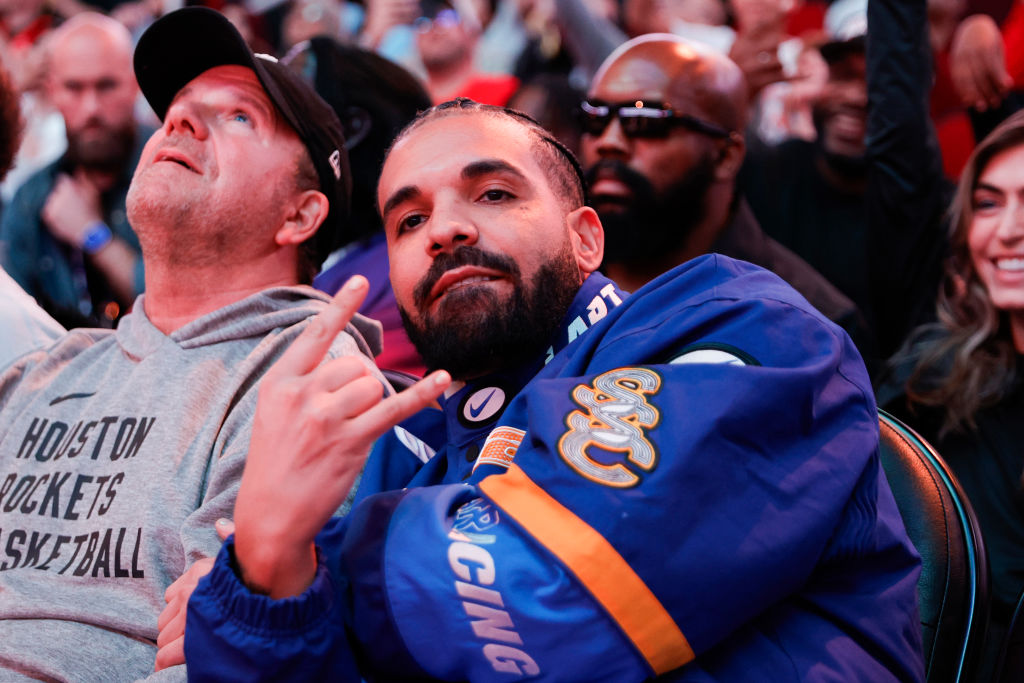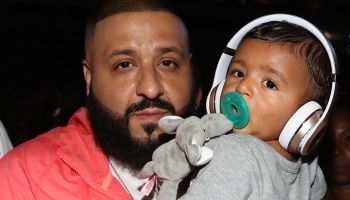Kendrick Lamar covers the latest issue of Rolling Stone with an incredibly haunting photo. Inside, what he had to say was equally powerful; he dove into his tough childhood, what it meant to have a father in his life, visiting Nelson Mandela’s jail cell in South Africa, and #45.
As you’d expect, K. Dot had a lot to say about hip hop, too, and didn’t mince words when he defined ‘wack artists’ and considered the idea of rappers having ghostwriters. He also got into how he stumbled into Taylor Swift’s pop beef with Katy Perry, how he ended up learning a thing or two from Beyoncé, and some lighter chat about what makes him laugh, acting offers, and even bad hairlines.
Readers get a real sense of who Kendrick currently is outside of music and who he wants to be. Check out some highlights below and read the full interview here.
1. Kendrick Lamar on his kind of fun:
“Everybody’s fun is different. Mine is not drinking. I drink casually, from time to time. I like to get people from my neighborhood, someone that’s fresh out of prison for five years, and see their faces when they go to New York, when they go out of the country. Shit, that’s fun for me. You see it through their eyes and you see ’em light up.”
2. On being abnormally mature as a kid:
“From what my family tells me, I carried myself as a man – that’s why they called me ‘Man Man.’ It put a stigma on the idea of me reacting as a kid sometimes – I would hurt myself and they would expect me not to cry. That put a lot of responsibility on me, got me ready for the responsibility my fans put upon me. I ended up getting tough skin, too, even with criticism. My first time in the studio, [label chief] Top Dawg was like, ‘Man, that shit wack.’ Other artists around couldn’t handle that. But it made me go back in the booth and go harder.”
3. On having a dad when many of his friends didn’t, and what that taught him:
“It taught me how to deal with [pauses] … emotions. Better than a lot of my peers. When you see kids doing things that the world calls harmful or a threat, it’s because they don’t know how to deal with their emotions. When you have a father in your life, you do something, he’ll look at you and say, “What the fuck is you doing?” Putting you in your place. Making you feel this small. That was a privilege for me. My peers, their mothers and grandmothers may have taught them the love and the care, but they couldn’t teach them that.”
4. On tragedy and healing:
“Well, you know, it was also just a lot of mothafuckin’ parties and a lot of humor, which sometimes blocks the fucked-up shit that I’ve seen. All of the funny shit with my crazy-ass uncles and my pops – he’s funny as fuck. My mom’s a crazy-as-fuck, funny, loving person. These things countered the negative shit, helped me to be able to understand tragedy, but not break from it.”
5. On why he’s been quiet about Donald Trump:
“I mean, it’s like beating a dead horse. We already know what it is. Are we gonna keep talking about it or are we gonna take action? You just get to a point where you’re tired of talking about it. It weighs you down and it drains your energy when you’re speaking about something or someone that’s completely ridiculous. So, on and off the album, I took it upon myself to take action in my own community. On the record, I made an action to not speak about what’s going on in the world or the places they put us in. Speak on self; reflection of self first. That’s where the initial change will start from.”
6. On whether its ever okay for a rapper to have a ghostwriter, being that he wrote for Dr. Dre:
“It depends on what arena you’re putting yourself in. I called myself the best rapper. I cannot call myself the best rapper if I have a ghostwriter. If you’re saying you’re a different type of artist and you don’t really care about the art form of being the best rapper, then so be it. Make great music. But the title, it won’t be there.”
7. On visiting Nelson Mandela’s jail cell in South Africa and what he took away from the experience:
“We sat inside the actual cell. We saw the stones that they had to dig up day-to-day. That was crazy. You could feel their spirits there, basically saying, ‘Take a piece of the story back to your community.’ That’s exactly what I did. To Pimp a Butterfly, which is me talking to my homeboys with the knowledge and the wisdom that I gained.”
He adds, “If you could see this cell, man. And they’re laying on the floor, a cold floor. To still be able to carry out a message and socially move your people from inside that cell, you just gotta be a strong individual.”
8. On if he knew he was taking sides in Taylor Swift and Katy Perry’s beef when he remixed Swift’s song “Bad Blood:”
“[Through laughter] No, I wasn’t aware of that, bro. That’s a great question. No! On the record, no. Which makes it even more funny now, for sure. That’s far beyond my concern. I have to stay away from that, for sure. That’s some real beef [laughs].”
9. On what he learned from Beyoncé while working on Lemonade:
“How particular to be about your music. She’s a perfectionist. Think about the BET performance. She was very particular – the lighting, the camera blocking, the transition from the music to the dancing. It was confirmation of something I already knew.”

















